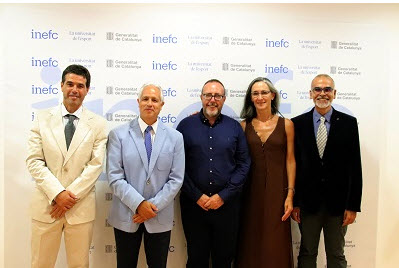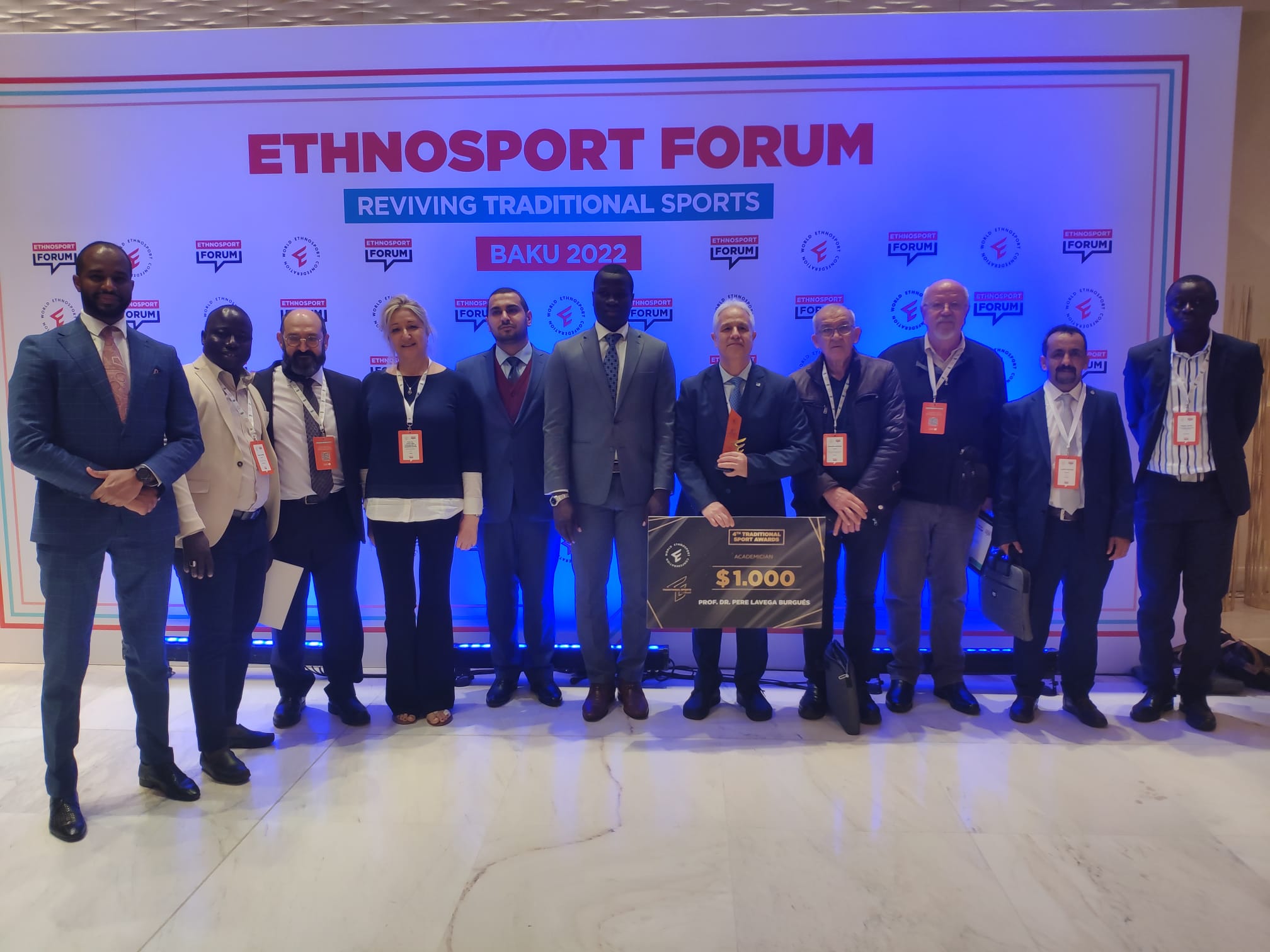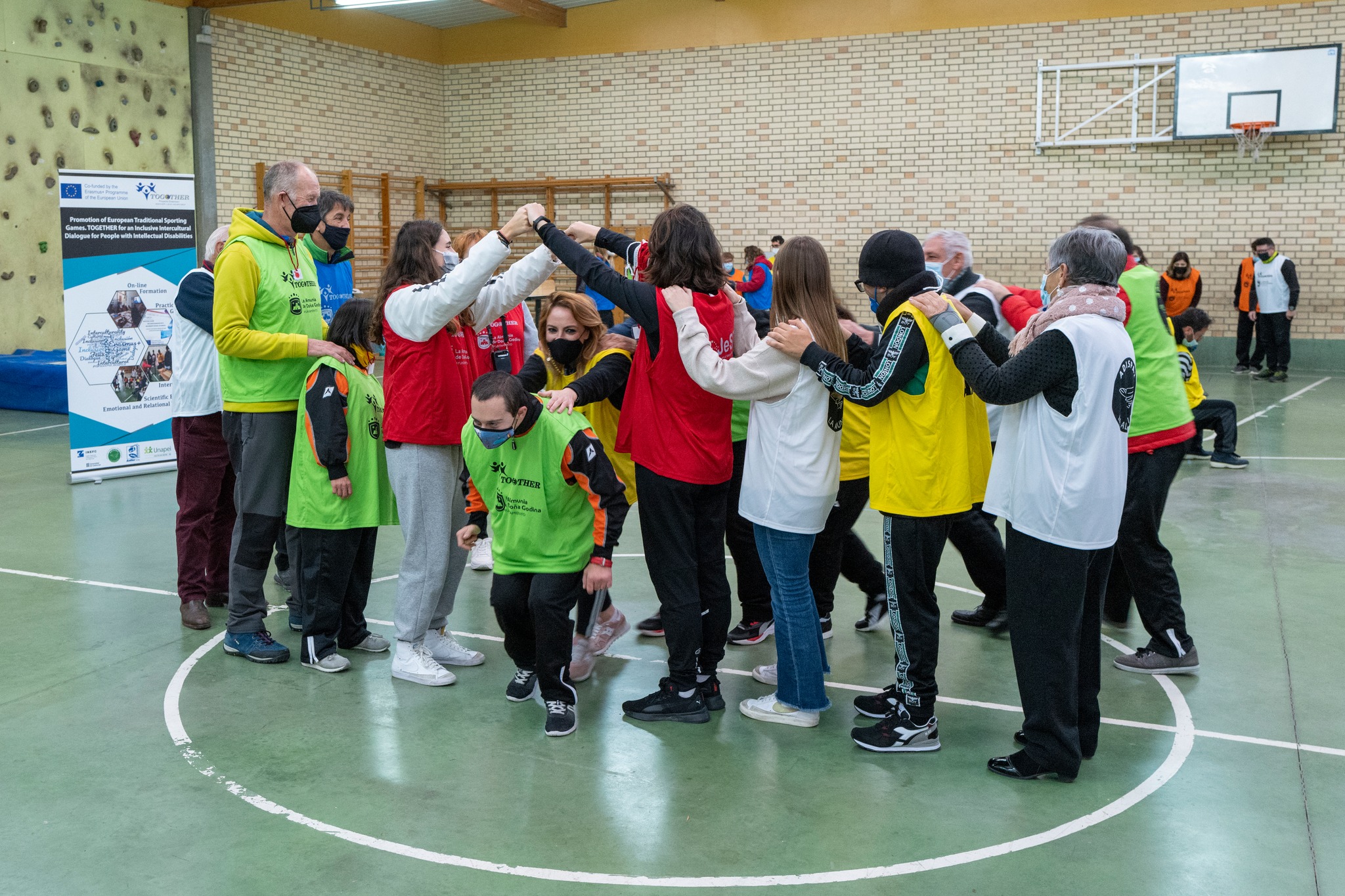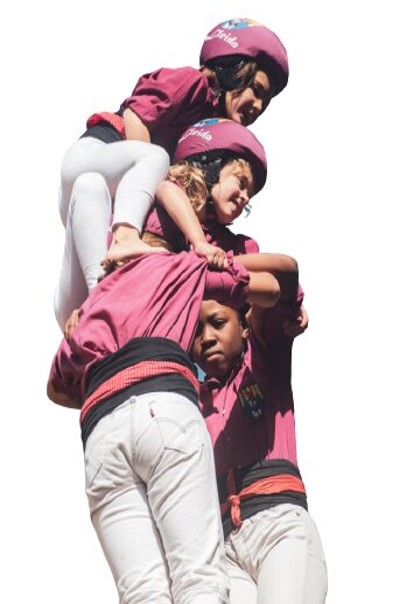Archivo de la etiqueta: juego deportivo tradicional
Presentación de la Tesis Doctoral del Dr Rafael Luchorro
El acto de presentación y defensa de la tesis
Resumen
The official guidelines of UNESCO (Kazan Plan, 2017), the United Nations (2030 Cultural Agenda), and the Government of the Canary Islands (Castro, 2021), establish the safeguarding and promotion of traditional games (TSGs) and the accompanying values as priority sustainable development objectives, considering them as intangible cultural heritage. This doctoral thesis consists of two parts: The first part revealed the ethnomotor distinctive features of TSGs (internal logic) and their relationship with the local culture (external logic). For this purpose, an ethnomotor investigation of 513 TSGs was conducted by analyzing the content of 27 written sources published in the Canary Islands since the 1940s. The content analysis was enriched through statistical treatment (descriptive statistical analysis), cross-tabulations, classification trees, and frequency areas. This study identified the educational richness of TSGs in the Canary Islands, characterized by three ethnomotor distinctive features: a wide ludodiversity of sociomotor experiences, the promotion of sustainable learning respecting the material (natural and domestic) and social environment, and the activation of intense ludomotor experiences lived in the present moment (Carpe Diem). In the second part, the effects of an ethnomotor pedagogical intervention (through seven actions conducted inside and outside the school) using TSGs with objects on the development of sustainable, meaningful learning and emotional well-being of primary education students in the Canary Islands were demonstrated. A total of 226 students participated (aged between 11 and 12 years), including 118 girls and 108 boys from seven primary education centres in Telde on the island of Gran Canaria. Various instruments were used to collect information from students (writing a text, GES emotional scale), the teaching staff (semi-structured interviews), and the researcher (field notes, audiovisual recordings). The data analysis followed a mixed-method approach; qualitative data were analyzed through content analysis (deductive and inductive), while quantitative data were analyzed using various statistical strategies (descriptive statistics, multidimensional frequency areas, cross-tabulations -to explore pairwise associations between variables and ethnomotor phases, and decision trees to establish predictive variables for meaningful learning and emotional well-being in each phase-). The findings demonstrated that this experience was innovative, promoting significant transdisciplinary and context-based sustainable development learning within the local culture. The students learned in a secure environment of emotional well-being. It was observed that the family member is a key educational agent in promoting sustainable contextualized ethnomotor conducts, along with the recognition of the crucial involvement of various educational agents. It was also observed that traditional games with objects serve as a talisman in this educational process and contribute to the subjectification of students. Finally, it was observed that confirming the adequacy of the project functions as a thermometer to validate the activation of sustainable, meaningful learning and emotional well-being.
Paraules clau
Praxiologia motriu; Conductes motrius; Etnomotricitat; Praxiología motriz; Conductas motrices; Etnomotricidad; Motor praxiology; Motor conduct; Ethnomotricity
Intervención del Dr Pere Lavega en el Seminario Intenacional Permanente Educación Física y Deporte
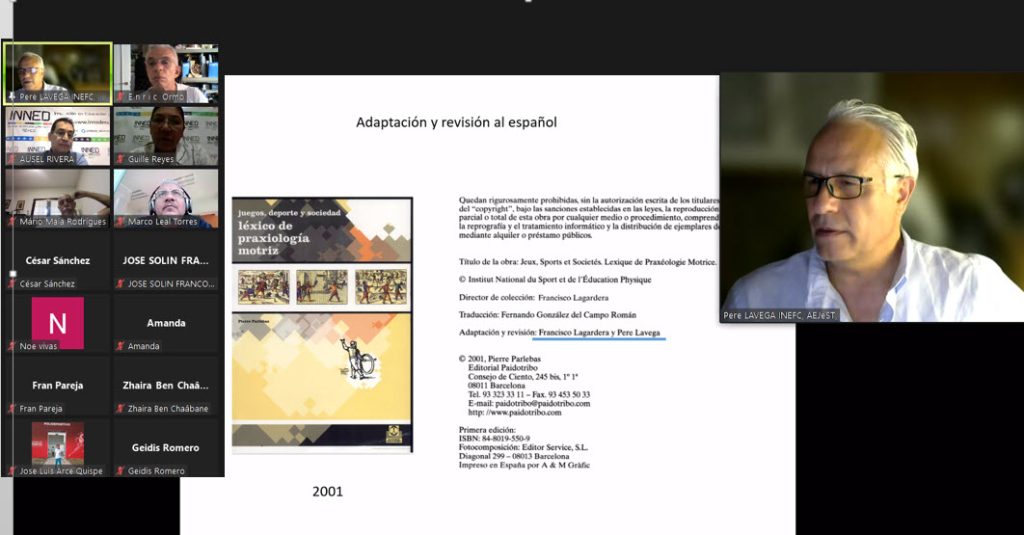
El l Dr Pere Lavega ha esta convidat pel Seminario Intenacional Permanente Educación Física y Deporte. El nostre cap del grup de recerca GIAM, un cop més, ha escampat el seu magisteri en Praxeologia i el Joc Esportiu Tradicional. Ha parlat sobre el Joc Tradicionla, la formació, la Praxeologia, la Ciencia de l activitat física i ha respost a les qüestions dels assistents de diversos paisos d Hispanoamerica
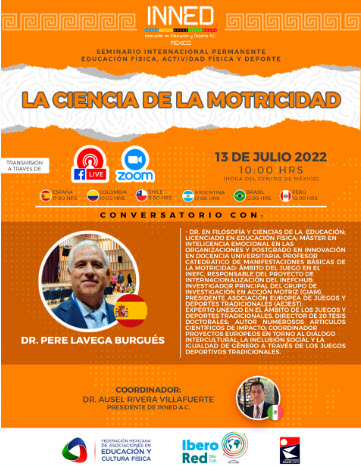
Charla Del Dr. Pere Lavega por el Seminario Intenacional Permanente Educación Física y Deporte. Nuestro lider el grupo de investigación GIAM , ha compartido su magisterio en Praxeología y el Juego Deportivo Tradicional. Ha platicado sobre el Juego Tradiciona, la formación, la Praxeología, la Ciencia de la actividad física y ha respondido a las cuestiones de los asistentes de diversos países de Hispanoamerica
Talk by Dr. Pere Lavega for the Permanent International Seminar on Physical Education and Sport. Our IP of the GIAM research group, once again, has shown his teaching in Praxeology and the Traditional Sports Game.
#GiamLleida #InefcLleida #inefcatalunya #joctradicional #juegostradicionales #traditionalgames #jeutraditionnel #PraxiologiaMotriz
Dr. Pere Lavega was awarded by the World Ethnosport Confederation (Baku 2022 )
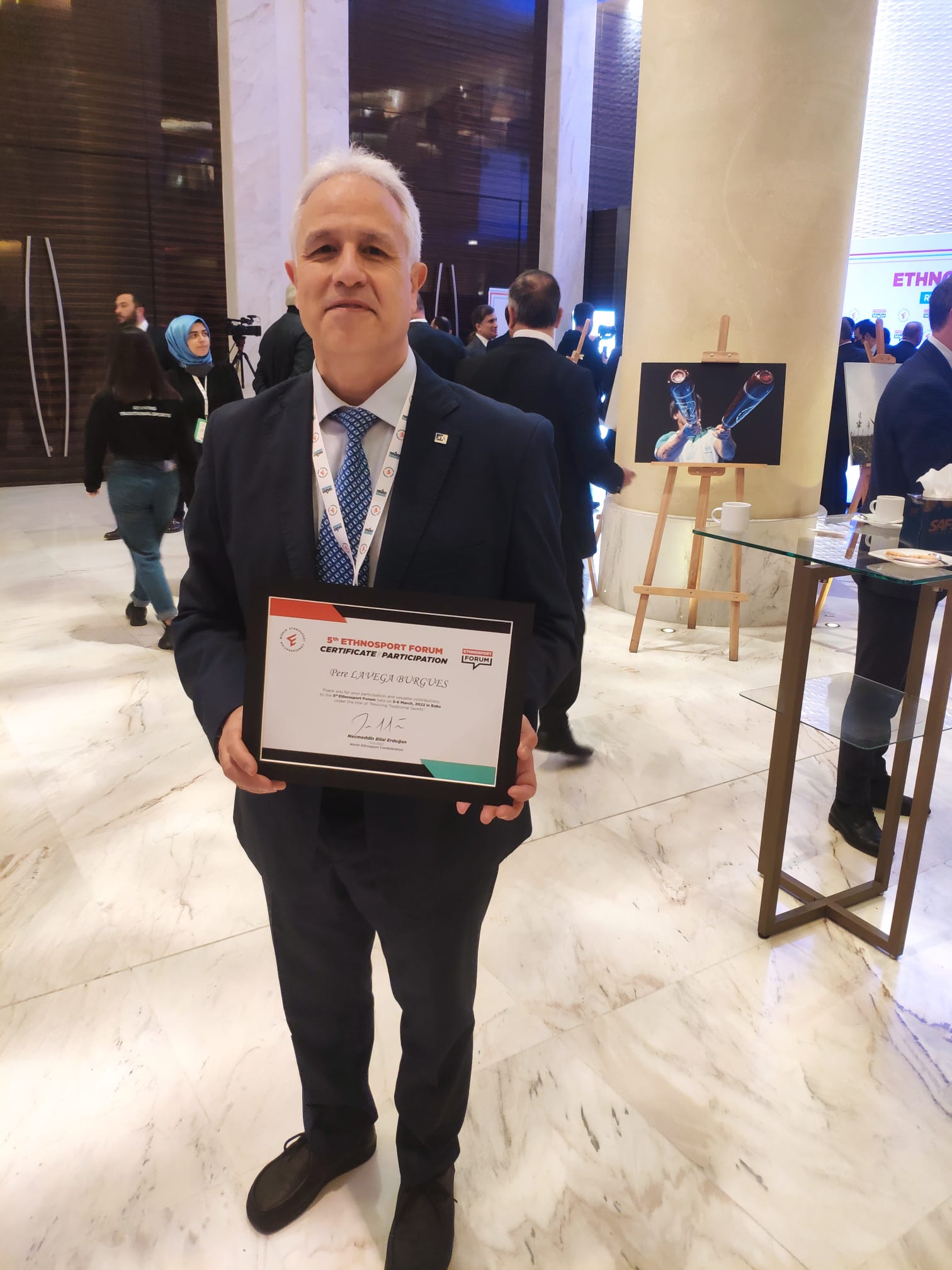 El Dr Pere Lavega, IP del grup GIAM, va estar present al 5th Ethnosport Forum organitzat per WEC a Bakú, Azerbaidjan. Van participar 140 persones de 45 països, i va comptar amb la presència de ministres i alts càrrecs polítics de països d’Assia, Àfrica i Amèrica. En aquesta trobada va rebre el reconeixement internacional com a acadèmic destacat en el campo del etnoludisme i la etnomotricitat. Es va valoar seva influència internacional a la comunitat acadèmica i científica en la generació de coneixement científic al voltant dels Jocs i Esports tradicionals.
El Dr Pere Lavega, IP del grup GIAM, va estar present al 5th Ethnosport Forum organitzat per WEC a Bakú, Azerbaidjan. Van participar 140 persones de 45 països, i va comptar amb la presència de ministres i alts càrrecs polítics de països d’Assia, Àfrica i Amèrica. En aquesta trobada va rebre el reconeixement internacional com a acadèmic destacat en el campo del etnoludisme i la etnomotricitat. Es va valoar seva influència internacional a la comunitat acadèmica i científica en la generació de coneixement científic al voltant dels Jocs i Esports tradicionals.«Jeux sportifs, jeux de société et classifications», nueva obra de Pierre Parlebas y Michel Boutin
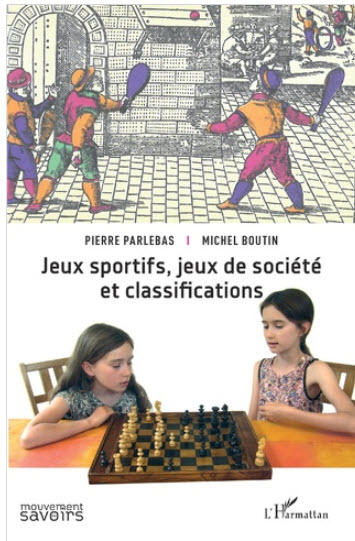 En esta nueva obra, «Jeux sportifs, jeux de société et classifications«,fruto del estudio y trabajo de Pierre Parlebas y Michael Boutin realizan un trabajo de analisis del juego y su concepto.
En esta nueva obra, «Jeux sportifs, jeux de société et classifications«,fruto del estudio y trabajo de Pierre Parlebas y Michael Boutin realizan un trabajo de analisis del juego y su concepto.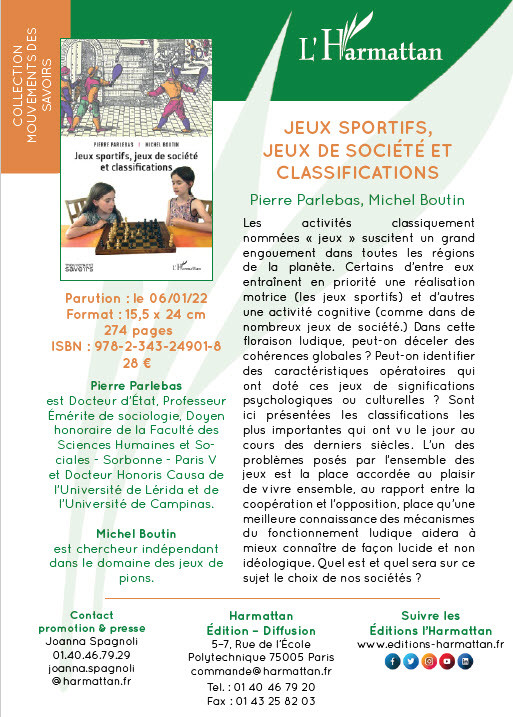 es el lugar otorgado al placer de vivir juntos, a la relación entre cooperación y oposición, lugar que un mejor conocimiento de los mecanismos del funcionamiento lúdico ayudará a comprender mejor de manera lúcida. y no ideológico.
es el lugar otorgado al placer de vivir juntos, a la relación entre cooperación y oposición, lugar que un mejor conocimiento de los mecanismos del funcionamiento lúdico ayudará a comprender mejor de manera lúcida. y no ideológico.Together Erasmus+ Project. International festival inclusive, La Almunia de Doña Godina
Last week from 1 to 3 December Almunia Doña Godina, Zaragoza, Spain. We organized the last action of Together Erasmus+ Project coordinated by INEFC and a large participation of GIAM members.
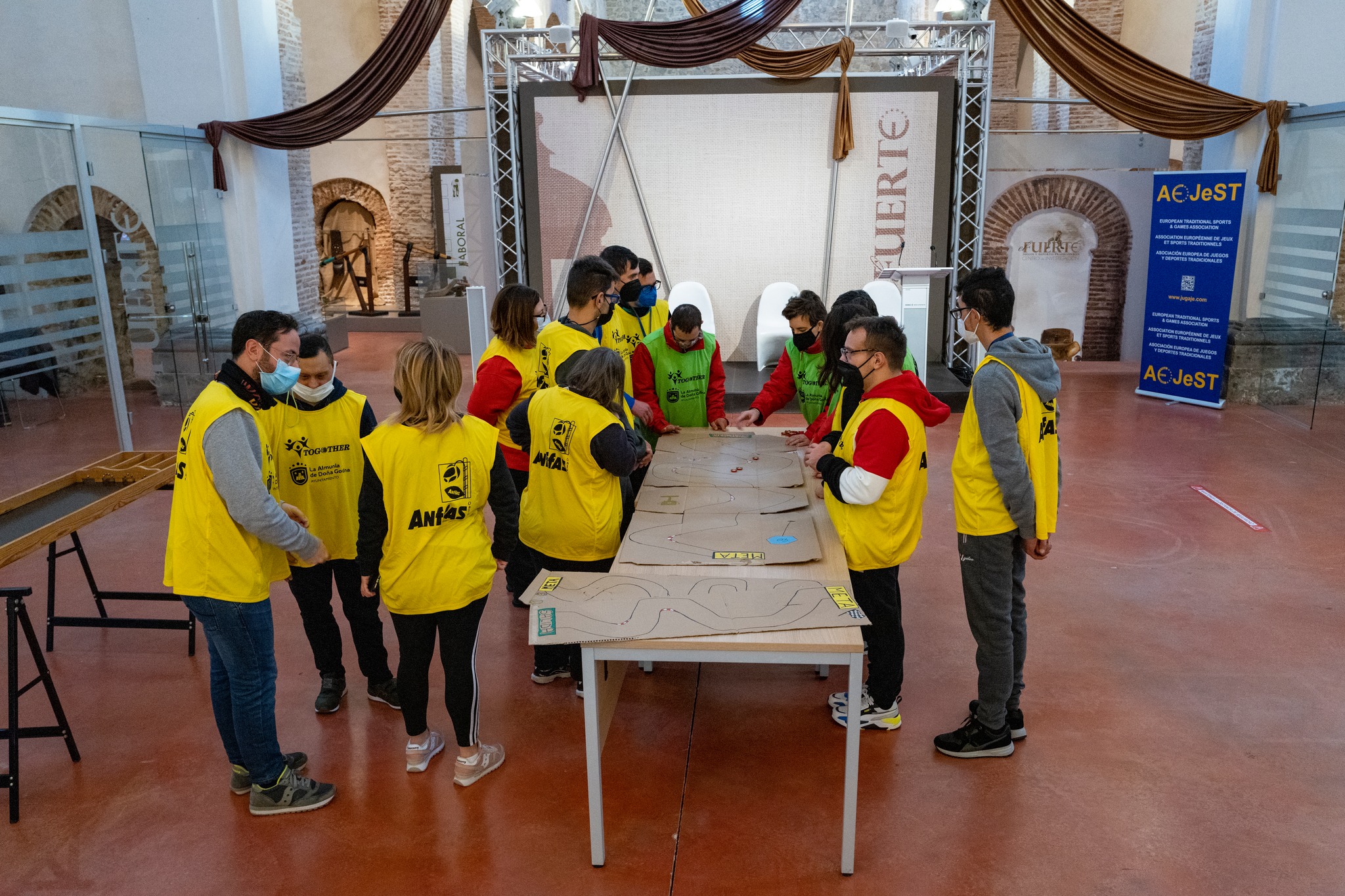 An international festival inclusive festival with people with disabilities from Italy, France, and Spain and with students of secondary school and members of local Cultural Associations.
An international festival inclusive festival with people with disabilities from Italy, France, and Spain and with students of secondary school and members of local Cultural Associations.
It was a really special experience to confirm traditional games are a powerful tool to promote intercultural inclusive dialogue.
La semana pasada del 1 al 3 de diciembre, en la Almunia Doña Godina, Zaragoza, España. Organizamos la última acción del Proyecto Together Erasmus + coordinado por INEFC y una numerosa participación de los miembros del GIAM. Un festival internacional inclusivo con personas con discapacidad de Italia, Francia y España y con estudiantes de secundaria y miembros de Asociaciones Culturales locales. Fue una experiencia realmente especial confirmar que los juegos tradicionales son una herramienta poderosa para promover el diálogo inclusivo intercultural.
The Emotional States Elicited in a Human Tower Performance: Case Study
Se ha publicado en la Revista Frontiers el artículo The Emotional States Elicited in a Human Tower Performance: Case Study (Los estados emocionales originados en una actuación de Castellers: estudio de caso) .
La investigación tuvo el objetivo de estudiar los estados emocionales (bienestar, malestar y afectividad) originados por una actuación representativa de la colla de Castellers de Lleida, la actuación en la Plaça Paeria de Lleida.
El principal hallazgo de ese estudio es que las torres humanas mayoritariamente suscitan el estado emocional de bienestar, donde se puede destacar que la lógica interna cooperativa de práctica favorece relaciones interpersonales intensas de bienestar socioemocional.
El trabajo, innovador en el estudio de la actividad dels Castellers, juego deportivo tradicional y uno de los elementos identificadores mas específicos de la identidad de Catalunya, ha sido liderado por la investigadora ![]() Sabrine Damian-Silva1, con un equipo compuesto por Carles Feixa2,
Sabrine Damian-Silva1, con un equipo compuesto por Carles Feixa2, ![]() Queralt Prat1,
Queralt Prat1, 


Unai Saez de Ocariz 4,
![]() Antoni Costes1 y
Antoni Costes1 y 
BRIEF RESEARCH REPORT ARTICLE
ENLACE A LA ENTRADA : https://praxiologiamotriz.inefc.es/?p=1382
Keywords: ethnomotricity, intangible cultural heritage, traditional sporting game, motor praxiology, human towers
Citation: Damian-Silva S, Feixa C, Prat Q, Luchoro-Parrilla R, Pic M, Rillo-Albert A, Sáez de Ocáriz U, Costes A and Lavega-Burgués P (2021) The Emotional States Elicited in a Human Tower Performance: Case Study. Front. Psychol. 12:611279. doi: 10.3389/fpsyg.2021.611279
ABSTRACT: Human Towers are one of the most representative traditional sporting games in Catalonia, recognized in 2010 as Intangible Cultural Heritage by the United Nations Organization for Education, Science and Culture (UNESCO). The objective of this research was to study the emotional states (well-being, discomfort, and affectivity) elicited by a representative performance of the colla de Castellers de Lleida. This research is based on an ethnographic case study, with mixed methods in which 17 key informants (castellers) voluntarily participated. Participant observation was used; the data were recorded in a field diary and oral sources (semi-structured interviews). The content analysis was done using the Atlas.ti software (version 8.4.4). An SPSS database was also created. The statistical techniques were: Descriptive statistical techniques, cross tables with Pearson’s Chi-square values (significance level of p < 0.05). We also used a classification and regression trees (CRT) to examine the predictive capacity of five independent variables (data source, logic, semantic units; contexts of a performance) of emotional states. The results reveal that the comments (n = 132) were mostly oriented toward well-being states (n = 70; 53%), The internal cooperative logic of the Human Towers enhances the intense interpersonal relationships of socio-emotional well-being.
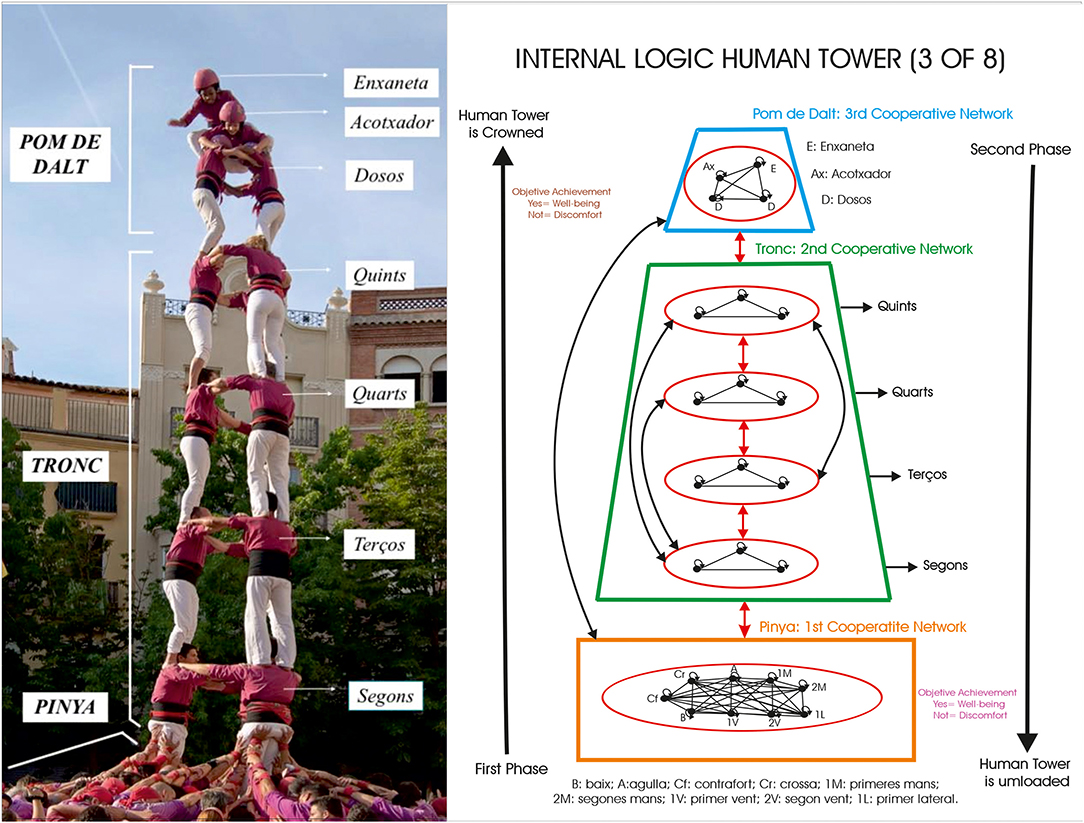
Figure 1. Parts of a human tower three of eight (photo author’s own) and its corresponding motor communication network associated with emotional states. On the right, graph theory is applied to represent the castellers (points) and their cooperative communication relationship (lines) between people on the same floor and also on different floors, in the phase of loading, unloading. All this provokes emotional states of well-being or discomfort depending on the result of the performance.
1Motor Action Research Group (GIAM), INDEST, National Institute of Physical Education of Catalonia (INEFC), University of Lleida (UdL), Lleida, Spain , 2Research Group on Youth, Society and Communication (JOVIScom), Pompeu Fabra University, Barcelona, Spain, 3Motor Action Research Group (GIAM), Institute of Sport, Tourism, and Service, South Ural State University, Chelyabinsk, Russia, 4Motor Action Research Group (GIAM), INDEST, National Institute of Physical Education of Catalonia (INEFC), University of Barcelona (UB), Barcelona, Spain
ABSTRACT: Els Castells, las torres humanas, son uno de los juegos deportivos tradicionales más representativos de Cataluña, reconocido en 2010 como Patrimonio Cultural Inmaterial por la Organización de las Naciones Unidas para la Educación, la Ciencia y la Cultura (UNESCO). El objetivo de esta investigación fue estudiar los estados emocionales (bienestar, malestar y afectividad) provocados por una actuación representativa de la colla de Castellers de Lleida. Esta investigación se basa en un estudio de caso etnográfico, con métodos mixtos en el que participaron voluntariamente 17 informantes clave (castellers). Se utilizó la observación participante; los datos fueron registrados en un diario de campo y fuentes orales (entrevistas semiestructuradas). El análisis de contenido se realizó mediante el software Atlas.ti (versión 8.4.4). También se creó una base de datos SPSS. Las técnicas estadísticas fueron: Técnicas estadísticas descriptivas, tablas cruzadas con valores de Chi-cuadrado de Pearson (nivel de significancia de p <0.05). También utilizamos árboles de clasificación y regresión (CRT) para examinar la capacidad predictiva de cinco variables independientes (fuente de datos, lógica, unidades semánticas; contextos de una actuación) de estados emocionales. Los resultados revelan que los comentarios (n = 132) estuvieron mayoritariamente orientados hacia estados de bienestar (n = 70; 53%). La lógica cooperativa interna de las Human Towers potencia las intensas relaciones interpersonales de bienestar socioemocional.
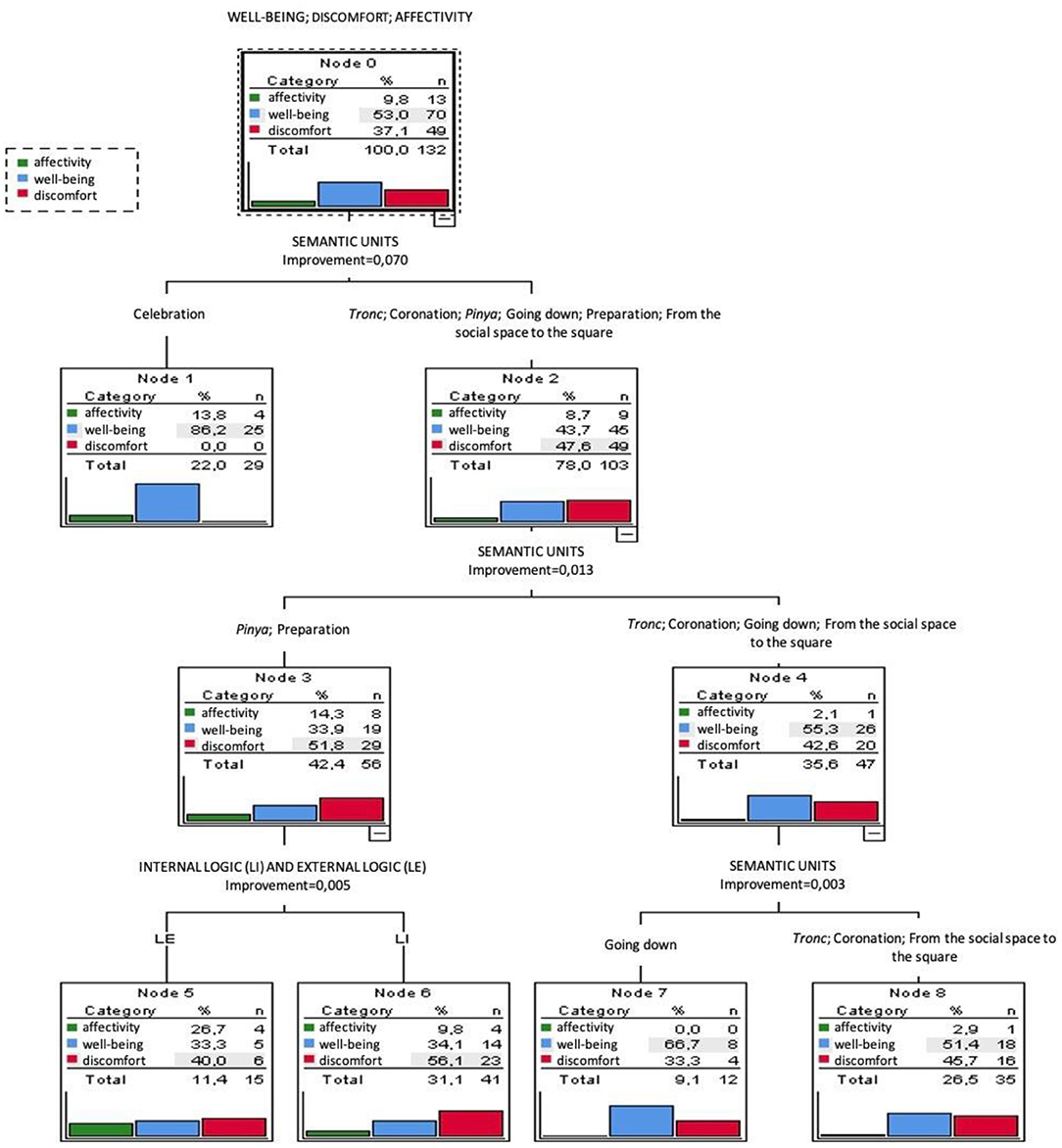
Classification and regression tree (CRT): predictive variables of emotional states.
The Traditional Sporting Games as a mirror of society. The case of the Games in Lleida, in the Spanish Civil War
Se ha publicado en la revista Frontiers, el articulo Playing Ludomotor Activities in Lleida During the Spanish Civil War: An Ethnomotor Approach (La practica de actividades ludomotoras en Lleida durante la Guerra Civil española: un enfoque etnomotor) Los autores son miembros del GIAM 

 Rosa Rodríguez-Arregi1,
Rosa Rodríguez-Arregi1, 


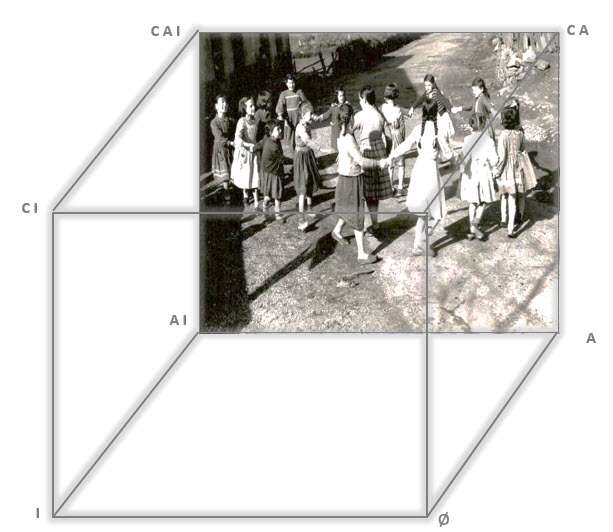
BRIEF RESEARCH REPORT ARTICLE
Front. Psychol., 12 January 2021 | https://doi.org/10.3389/fpsyg.2020.612623
Keywords: Ethnomotricity, motor praxeology, war games, intangible cultural heritage, mixed methodsnvb
Abstract :
The traditional ludomotor activities (LA) are recognized by UNESCO as an intangible piece of cultural heritage. The ethnomotricity analyzes LA in its sociocultural context, taking into account the proprieties of rules or motor conditions (internal logic) and the link with local culture (external logic).
The aim of this research was to identify and reveal the distinctive ethnomotor features of LA in order to understand the adaptations that occurred in the social scenario of the Spanish Civil War (1936–1939) in Lleida.
The corpus of the research was constituted by 101 LA which were collected from the analysis of 20 semi-structured interviews. An “ad hoc” tool was designed and agreed upon by expert observers. It was comprised of a total of 27 ethnomotor variables related to LA.
The experts achieved high reliability [Cohen’s kappa coefficient (κ) and Spearman’s correlation coefficient = 1] when the classification of LA was carried out on two different occasions.
Descriptive statistics, cross-tabulations (Pearson’s chi-squared) effect sizes, and two-step clusters were performed by external and internal logic variables.
The presence or absence of motor interaction (X2 = 9.029; df = 1; p < 0.003; ES = 0.298) was enlightening when comparing LA with and without a war connotation. On the other hand, the hierarchy of variables rested primarily on IL-Domain (Psycho-Coop-Oppo-Coop/Oppo) (PI = 1). Among other singularities, while two-step cluster analysis revealed a corresponding ethnomotor silhouette with cluster 1, with the warlike connotation (n = 48; 96.0%), its homologous structure was expressed (Cluster 2) in the absence of the warlike character (n = 26; 50%).
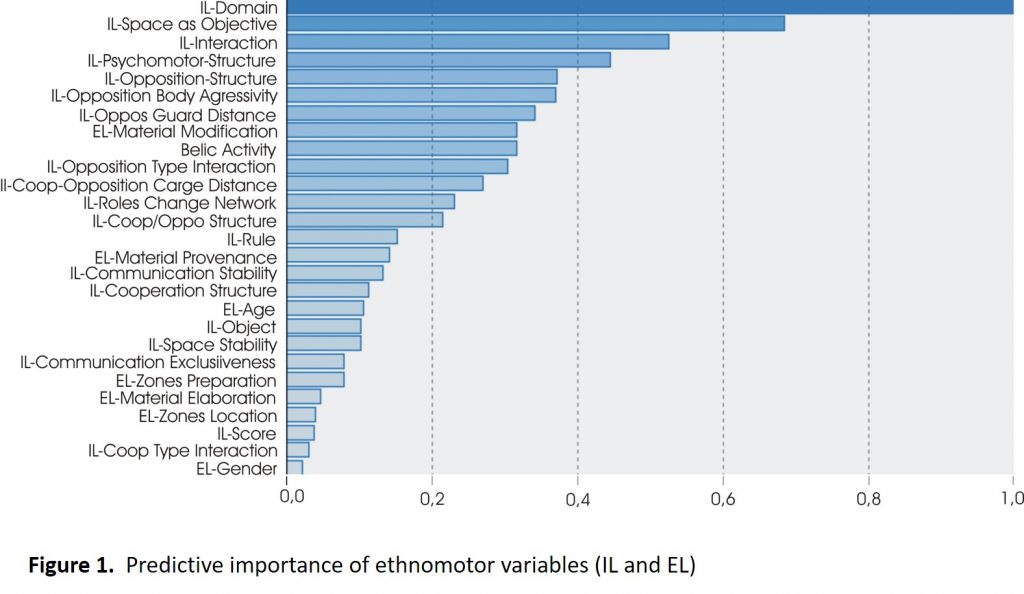
Abstract :
Los juegos deportivos tradicionales (JDT) (TSG) son reconocidos por la UNESCO como patrimonio cultural inmaterial de la humanidad. La etnomotricidad analiza el TSG en su contexto sociocultural, teniendo en cuenta la propiedad de las reglas (lógica interna) y el vínculo con la cultura local (lógica externa)..
El objetivo de esta investigación fue identificar y revelar los rasgos etnomotores distintivos de las actividades ludomotoras (LA) para conocer las adaptaciones producidas en el escenario social de la Guerra Civil española (1936-1939) en el contexto geográfico de Lleida.
El corpus de la investigación estuvo constituido por 101 LA, recopilado a partir del análisis de 20 entrevistas semiestructuradas. Se diseñó una herramienta «ad hoc», consensuada por observadores expertos, constituida por 27 variables etnomotoras en la AL.
Los expertos lograron una alta confiabilidad cuando la clasificación de LA se realizó en dos momentos diferentes.
Se utilizó SPSS v.25 para aplicar estadísticas descriptivas, tabulaciones cruzadas, tamaños de efecto y grupos de dos pasos tratando el conjunto de variables lógicas externas e internas como unidades interconectadas de un conjunto binario.
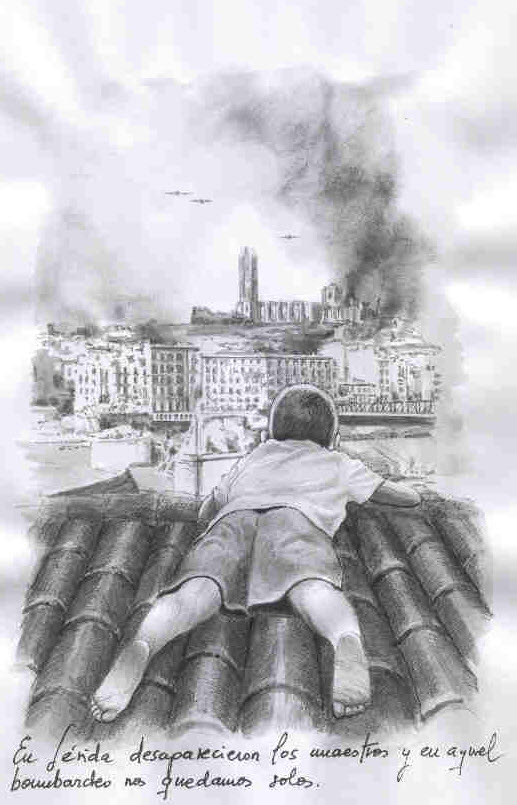
La presencia o ausencia de interacción motora (p <.003; ES = .298) fue reveladora cuando se comparó LA con y sin connotación de guerra. Por otro lado, la jerarquía de variables se basaba principalmente en IL-Domain (Psycho-Coop-Oppo-Coop / Oppo) (PI = 1).Entre otras singularidades, mientras que el análisis de conglomerados de dos pasos reveló una silueta etnomotora correspondiente con el conglomerado 1, con connotación bélica (n = 48; 96,0%); en sentido contrario, se expresó su homólogo (Cluster 2), en ausencia del carácter bélico (n = 26; 50%).






